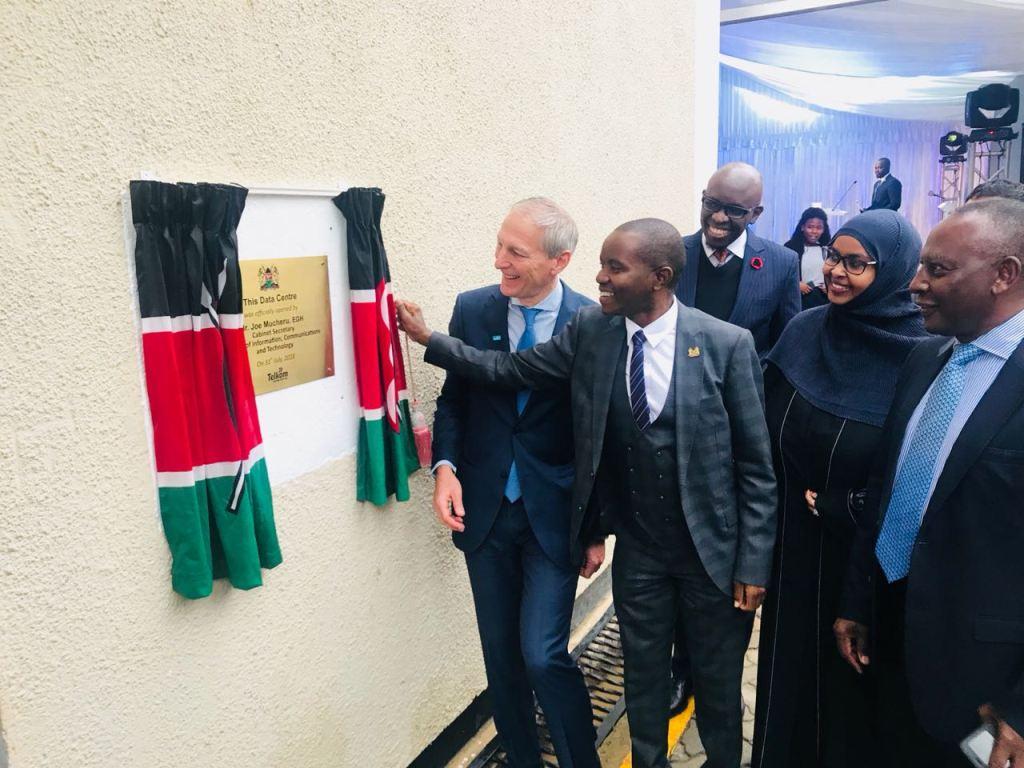
Telkom Kenya has today officially unveiled its new data centre in Nairobi that will help it tap into the growing data storage needs of local and reginal businesses. The Ksh 150 Million data centre is located in Nairobi’s Upper Hill area and will help the company improve its network quality, colocation and hosting services, internet connectivity and local loop connectivity.
The modernized open access facility at Milimani Exchange along Bishop Road, Upper Hill, Nairobi, is part of Telkom’s network infrastructure expansion programme and is capable of hosting all Telco’s infrastructure both local and international clients at the site.
According to Telkom Chief Executive Officer, Mr. Aldo Mareuse, this latest investment is to leverage on the rising demand for cloud-based services for Kenyan and regional businesses, at a customer‘s requirements.
“It gives our clients three redundant fiber routes guaranteeing back-up and access to international capacity on the Submarine Cables (TEAMS, EASSy & LION2) from Nairobi, enabling us to redeploy superior services competitively beyond market offering,” says Mr. Mareuse.
The new infrastructure, he says, provides access to national fiber backbone and metro capacities across the country whilst offering turnkey solution support for public and private cloud deployment and multi-channel access to services.
Speaking when launching the data center, ICT Cabinet Secretary, Mr. Joe Mucheru, lauded the timely infrastructure investment, amid booming data generation over the next five years. He urged enterprises entrusted with data to put in place measures to safeguard data from internal and external compromise.
“In recent days, there have been several cyber threats locally and internationally, leading to losses by individuals and organizations. As we have learnt in the same period, the threats are not necessarily external – some cyber threats originate internally. The Government will continue to invest in initiatives that tackle the ever-evolving cyber threats to back up our readiness and timely response,” says CS Mucheru.
The number of broadband connections is expected to grow at an average of twenty per cent a year in the next five years, according to the African Data Centre Market Report 2017.
The data centre has 3 diverse fiber routes serving the site to ensure uptime through redundancy to 3 different exchanges, namely: Westlands, GPO Nairobi and South-Hill Exchanges in Nairobi.
Latter-day businesses are investing heavily in data server space in data centers for cloud services, back up their data information, intersperse to other companies and provide secure, convenient services to their customers.
Global spending for big data and business analytics hardware, software and services is projected to rise from the current $150.8 billion to $210 billion by 2020, according to telecommunications analyst firm IDC.
Also Read: Telkom Kenya’s Goal Is To Be Number 1 In Data And Number 2 In Voice

